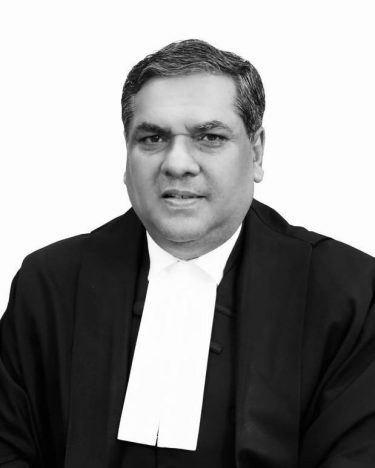
Former Chief Justice of India Sanjiv Khanna told a Joint Parliamentary Committee on Tuesday (August 19, 2025) that the proposed One Nation One Election Bill grants “unfettered discretion” to the Election Commission of India, raising constitutional concerns.
Justice Khanna appeared before the committee headed by BJP MP P.P. Chaudhary, which is reviewing the Constitution (One Hundred and Twenty-Ninth Amendment) Bill, 2024. The committee held a three-hour session where members questioned the former CJI on various aspects of the legislation.
The retired judge specifically flagged Clause 5 of the proposed Article 82A, which allows the Election Commission to decide when Legislative Assembly elections cannot be conducted alongside Lok Sabha polls. “This clause will be open to question as violating and offending the basic structure of the Constitution on the ground of being arbitrary and offending Article 14 of the Constitution,” Justice Khanna stated in his written submission.
He warned that the clause grants powers to the ECI and government that exceed those envisaged under Article 356 of the Constitution. “Postponement of elections by the ECI may result in indirect President’s Rule – in other words, the Union Government taking over the reins of the State Government. This will be questionable judicially, as violating the federal structure envisaged by the Constitution,” he noted.
Justice Khanna becomes the fifth former Chief Justice to raise concerns about the legislation. Earlier, Justice U.U. Lalit, Justice Ranjan Gogoi, Justice Jagdish Singh Kehar and Justice D.Y. Chandrachud had also pointed out legal infirmities in the proposed Bill.
Despite these concerns, Justice Khanna acknowledged that the Bill does not violate the basic structure of the Constitution in its entirety. He accepted the Election Commission’s authority in conducting polls but questioned the unfettered powers regarding postponement of elections.
The former CJI argued that the legislation fails to meet its basic objective of reducing policy paralysis caused by differing election cycles. He pointed out that the Model Code of Conduct would still apply during premature Assembly dissolution elections, defeating the Bill’s stated purpose.
The Constitution (One Hundred and Twenty-Ninth Amendment) Bill, 2024, commonly called the one nation, one election Bill, aims to synchronise elections to the Lok Sabha and State Assemblies across the country. Currently, elections to different State Assemblies are held at various times throughout the five-year cycle, separate from the Lok Sabha polls.
The Bill proposes to insert Article 82A and add clauses to Articles 83 and 172 of the Constitution to enable this synchronisation. The government argues this will significantly reduce expenditure and policy paralysis caused by frequent election cycles. However, the proposal faces strong opposition from several political parties who argue it threatens federalism and democracy.
The Opposition INDIA bloc, led by the Indian National Congress and consisting of regional parties like Samajwadi Party, All India Trinamool Congress, DMK and Rashtriya Janata Dal, strongly objected to the Bill when it was introduced in December 2024. Opposition parties describe the move as an attempt by the ruling BJP to consolidate power and convert the country from a multi-party democracy into a one-party state.
The concerns over Election Commission powers come amid ongoing questions about the poll body’s independence. In August 2025, Leader of the Opposition Rahul Gandhi accused the BJP of “vote chori” (vote theft), alleging over one lakh votes were manipulated in Karnataka during the 2024 Lok Sabha elections. The Election Commission rejected Gandhi’s allegations and demanded he submit a signed affidavit or apologise within seven days.
Justice Khanna expressed confidence in India’s democratic maturity, highlighting that the country has not witnessed mid-term elections in recent decades. Committee chairperson P.P. Chaudhary announced that the panel will now meet economists to evaluate the financial implications of the proposed legislation.




